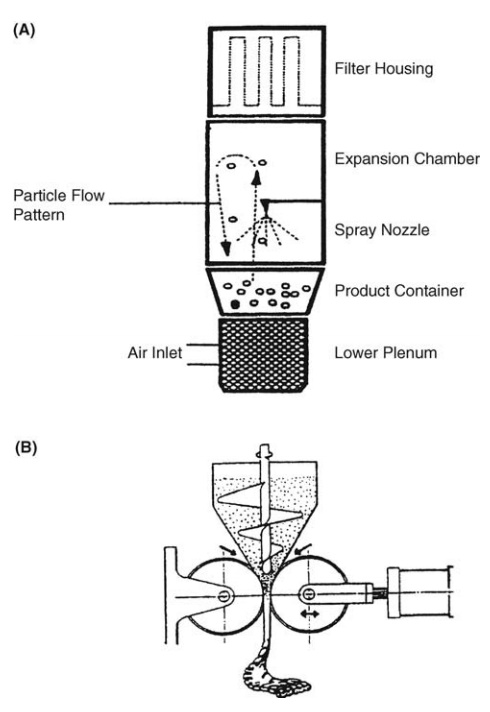Granulation
| Home | | Pharmaceutical Technology |Chapter: Pharmaceutical Engineering: Solid Dosage Forms
The simplest form of solid dosage form employs granules prepared from the drug and other components in stable aggregates in sizes large enough to facilitate accurate manipulation and dispensing in bulk and at the level of the unit dose.
GRANULATION
The simplest form of
solid dosage form employs granules prepared from the drug and other components
in stable aggregates in sizes large enough to facilitate accurate manipulation
and dispensing in bulk and at the level of the unit dose.
Following particle
size reduction and blending, the formulation may be granulated (Carstensen,
1993), which provides homogeneity of drug distribution in the blend. In
addition, it may help flow properties and powder compression characteristics.
Large granules can be prepared from primary particles by drying from a slurry
(with techniques described elsewhere in this text) or by spraying with
granulation solution. Figure 14.2A shows a top-spray granulator. An alternative
method (Fig. 14.2B) employs an auger to force the blend between rollers,
thereby forming a compressed solid that disintegrates into large aggre-gates
(Doelker, 1994).
The steps involved
in granulation begin with transferring powders to a mixer and blending the
product. The granulation solution can be added, and coarse milling or wet
granulation begins. Finally, the product is dried and milled to an appropriate
size. If the powder is unstable in the presence of polar solvents, it may be
compressed directly. Granulation increases the uniformity of drug distribution
in the product, improves the powder flow rate and uni-formity of flow, and, if
used as an aid to tabletting, assists in compression and bonding.
More
sophisticated approaches to combining the drug and excipients into a
free-flowing large particle size to improve homogeneity, handling, and drug
release characteristics include spray drying, fluid bed drying, extrusion

FIGURE 14.2 (A) Top-spray granulator. (B)
Granulator with an auger to force the blend between rollers (Chilsonator).
All of these processes are governed to
some degree by fundamental fluid flow, heat, and mass transfer phenomena.
